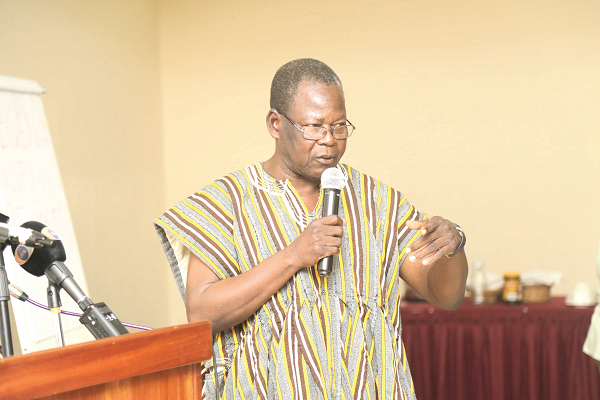The Ghana Anti-Corruption Coalition (GACC) has lauded the government for fulfilling its promises for the creation of the Office of the Special Prosecutor, the removal of ‘nuisance’ taxes and the use of technology to mobilise more revenue.
It also acknowledged the progress the government had made in the passage of the Right to Information (RTI) Bill, the improvement of the property valuation regime and the enhancement of revenue management.
These were contained in a review conducted by the GACC on the manifesto promises and policy statements of the New Patriotic Party (NPP) government.
It, however, faulted the government for failing to fulfil its promises in relation to the election of metropolitan, municipal and district chief executives (MMDCEs), the passage of a fiscal responsibility law and ensuring an effective assets declaration regime.
An anti-corruption campaigner, Mr Vitus Azeem, presented the findings of the report titled: “Assesment of Key Commitments and Policy Propositions of the NPP Government on Fiscal Transparency and Accountability Measures” in Accra yesterday.
The review used the desktop approach as most of the data were secondary in nature, gathered from official reports, such as the 2016 NPP manifesto, the 2017 and 2018 State of the Nation addresses by the President, the 2017 and 2018 Annual Budgets and Economic Policy statements and other NPP government policy statements related to its performance in office.
Successes
The report said the Office of the Special Prosecutor Act, 2017 (Act 959) was enacted, although there were no regulations to the Act.
It said a board of directors for the office had been appointed and inaugurated by the President.
Again, the report said the government had succeeded in abolishing several ‘nuisance’ taxes, noting, however, that its promise to reduce corporate tax had not yet been implemented.
It said the government had also put in place measures, such as the excise tax stamp system to make up for lost revenue as a result of the abolition and reduction of certain taxes.
The report stated that the government had fulfilled another promise by capping the use of statutory funds to 25 per cent with the passage of the Earmarked Funds Capping and Realignment Act, 2017 (Act 947).
It said there was a lot going on regarding the use of technology to formalise the economy and mobilise more revenue.
For instance, the report said, the ongoing implementation of the Taxpayer Identification Number (TIN), the National Identification System, the digital address system and the introduction of the paperless system at the ports, sought to formalise the economy and raise more revenue for the state.
Challenges
However, the report pointed out that contrary to the NPP’s promise to oversee the election of MMDCEs in two years after coming into office, the election of MMDCEs had been postponed to 2021 instead of the promised 2018.
That, it contended, was because the government had chosen to have the MMDCEs elected on partisan basis, instead of the original intent of a popular election without the involvement of political parties.
The report said the government had also failed to send a bill to Parliament to amend the Public Officers (Disqualification and Assets Declaration) Act, 1998 (Act 50) to ensure an effective assets declaration regime.
It said there had not been adequate demonstrated commitment by the government with regard to dealing with current government appointees accused of corruption.
However, it noted, there were a few cases involving appointees of the previous government before the courts.
The report stated that the NPP promised to amend the relevant sections of the Criminal Offences Act, 1960 (Act 29) to make corruption a felony, but “There is no bill before Parliament to make this amendment,” it noted.
Besides, it said, the NPP government had not adequately resourced the Commission on Human Rights and Administrative Justice (CHRAJ) and the Audit Service to hold the government accountable. The dwindling budgetary allocations to those institutions “do not show a fulfilment of this promise,” the report stressed.
Mr Azeem urged the government to take steps to implement all the promises, especially the election of MMDCEs, the passage of a fiscal responsibility law and ensure an effective assets declaration regime.
Concern
The Chairman for the occasion, Professor Kwame Karikari, expressed worry about the expensive lifestyles of some government officials, especially the use of expensive vehicles and the drawing of fuel.
He said while ministers of state were living in luxury, the judiciary lacked the needed financial support.
He asked civil society organisations to investigate the spending of very important government officials to bring a clarity on the issue.
Prof. Karikari, who is also the chairman of the Board of Graphic Communications Group Limited (GCGL), urged the electorate to measure political parties by the promises they made by considering the feasibility of those promises, vis-a-vis the country’s resource constraints.
The Executive Secretary of GACC, Ms Beauty Emefa Narteh, said the coalition believed that the promises were feasible and that the government needed to implement them.

